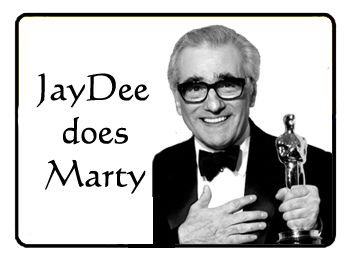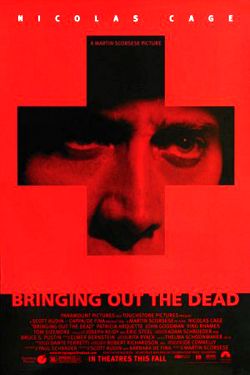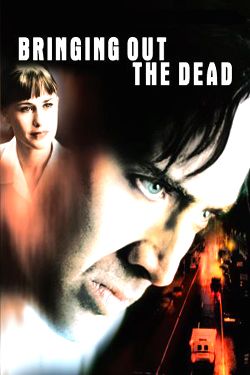Now we come to Marty's latest film, and his latest to be largely acclaimed as a masterpiece. It has also inspired a truly epic, apparently never-ending review (though Sexy kind of stole my thunder

); the kind of review normally only reserved for superhero films and my absolute favourites.
I think the reason it happened on this occasion is that as I began the review I still wasn't entirely sure of my opinion. So part of the review was me just trying to work out how I felt about it. As a result there may be a few contradictions and a few examples of me repeating myself. I say 'may' because unlike I normally do, I didn't read back through the review for mistakes and for editing. I couldn't be bothered!

And if even I can't be bothered I guess I can't blame other people if they can't be either.
Year of release
2013
Directed by
Martin Scorsese
Written by
Terrence Winter
Starring
Leonardo DiCaprio
Jonah Hill
Margot Robbie
Rob Reiner
Matthew McConaughey
Kyle Chandler
The Wolf of Wall Street
Plot - A film based upon the true story of disgraced stockbroker Jordan Belfort (DiCaprio), a man who began at the very bottom of the financial world as a penny stockbroker, but ended up running one of the largest brokerage firms on Wall Street. Not that he employed lawful means to get there mind you. Setting up the firm Stratton Oakmont with a number of his friends, including his business parter Donny Azoff (Hill), Belfort is willing to skirt every single rule in the book if it means making money. And make money he certainly does! Employing a series of scams, the size of the company expands rapidly, as do their bank accounts. As Jordan's bank balance grows, so does his thirst for decadence, resulting in lavish and outrageous parties for his staff and dangerous levels of substance abuse. When the FBI begin to take notice of his activities, Jordan has to devise more and more schemes in an attempt to stay one step ahead. With both the pressure of the FBI's investigation and his level of drug intake increasing, Jordan's life both at work and at home begins to crumble apart around him.
Whenever it comes time for the Academy Awards to roll around, it seems that more often than not there is one film that is chosen as the most controversial in the field. This year it appeared that 'honour' was bestowed upon Martin Scorsese's The Wolf of Wall Street. The main complaint levelled against the film seemed to be that it glorified the characters at the heart of the film and the criminal acts that they committed. In addition to that, many other people had issues with the excessive use of foul language and full frontal nudity that are present pretty much from the first moment. Addressing the latter I did have some problems with the language and sex of the film, though not the problems that most people had. I wasn't offended by it (in fact I rarely get offended by anything in the way of foul language, sex, violence etc), instead I just found it to be tiring and slightly irritating. It's already become quite a well-known fact that this film features more uses of the f-word than any other film, discounting documentaries. Now as I said I wasn't offended by this but just found it to be tiring after a while, hearing the same word over and over and over again it loses any power it had and just becomes grating, whether it be the f-word or not. For example it would be the same if you were bombarded by something along the lines of, “listen here you banana, I will banana you up you mother-bananaer. I mean really, what the banana man? Banana's sake!” And even if it's not the case it just gives off the feeling of laziness. And it's a similar case with the amount of sexual escapades and nudity throughout the film. Scorsese just seems to get so carried away with it all, taking it to excesses that just aren't necessary and begins to cross over into the territory of trying to shock just for the sake of it. Now I'm sure that many people will point out that this excessive behaviour of the film accurately reflects the excessive nature of the characters themselves, and I will admit that there may be some truth to that, but that doesn't mean I personally found it any less irritating.
Now in regards to the accusations about glorifying their actions what I will say is that if you are looking for a morality tale then you have most certainly come to the wrong place. If you're waiting for the central character to grow a conscience and expound about how the true meaning of life is not money but love then you will be sorely disappointed. And a similar level of disappointment awaits you if you're hoping to see the character severely punished for his crimes. Despite all of the crimes he commits and the pain he inflicted on goodness knows how many people, his comeuppance is crushingly lenient. It really does come across as the proverbial slap on the wrist. And I think a large part of the problem that many people have with the film comes from the fact that Scorsese very much toes the line throughout the film, not imbuing the film with a personal point of view or explicit message of any kind. That leaves it up to the audience as to how the film should be interpreted which is why I think there is such a large split between opinions. So each individual may come away with a completely different view of the film. Is the film a look at how obsession and the unquenchable thirst of greed can destroy a man's life? Does such a flashy, glitzy approach make it a glorification of these men and their actions? Or is it merely just a depiction of the events that occurred with no ulterior motive behind it whatsoever? By deriving humour from these characters and their criminal behaviour is Scorsese undermining the pain they caused countless people, or does it show the characters for the idiotic buffoons they are? I've got to admit that just as with Goodfellas I do have a sense of misgiving at the film using the crimes of real individuals who did actually hurt people and turning that into entertainment.
And if anything I feel that instead of going after the criminal scumbags who commit these crimes, Scorsese is perhaps judging and indicting us, the people who fall for them. In that respect I felt that the film's final image was quite telling. It sees Jordan Belfort, now released from prison, conducting a motivational seminar on becoming the best salesman you can be. As he goes about interacting with people in the front row Scorsese drifts away from him to focus on the faces of the audience, and they're all sitting there entranced by him. This is a guy who committed one crime after another, who ruined one life after another and yet here they sit looking at him with a sense of wonder and adoration, wanting to learn from him. I could be getting it completely wrong but if that image were to come with a caption it might be something along the lines of, “look at these stupid b*stards!” So it may be about the stupidity of people, the ineptitude of the FBI and the leniency that is allotted to the rich. Now while the events take place in a different time and in a different financial sector the film also feels strongly linked to our current climate and the financial meltdown that the world suffered because of the reckless actions of bankers. In that sense the film perhaps acts as an examination of just how such a financial catastrophe could have occured; highlighting the danger of a world that is not properly regulated and just how some individuals can do such things when they become so intoxicated by the power at their fingertips. It will perhaps make people ask themselves what they would do in such a position, and a few people may not like the answer they come up with. I just feel that the film could have benefitted from presenting an alternative viewpoint and a competing philosophy to the gross, materialised gluttony on show. I think that if Scorsese had just slightly reduced the time he spent on the excesses of Jordan and his cohorts and devoted it to perhaps enhancing the FBI investigation it could have added another level of intrigue. Or if it had perhaps allowed for a brief glimpse at some of the lives their antics must have ruined.
Film Trivia Snippets - Matthew McConaughey's scenes were shot on the second week of filming. The chest beating and humming performed by him was improvised and actually a warming up ritual that he performs before acting. When Leonardo DiCaprio saw it while filming, the brief shot of him looking away uneasily from the camera was actually him looking at Martin Scorsese for approval. DiCaprio encouraged them to include it in their scene and later claimed it "set the tone" for the rest of the film. /// For the scenes that depicted the actors taking cocaine they were actually snorting crushed vitamin B pills. /// The scene where Brad punches Donnie is real, in fact Jon Bernthal hit Jonah Hill so hard that the prosthetic teeth he was wearing split and flew out of his mouth. Scorsese then proceeded to film Hill's face swelling in real time. /// Desperate to work with Scorsese, Jonah Hill took a pay cut by being paid the SAG minimum, which was $60,000. When Scorsese asked to meet him, Hill also demanded that he actually audition for the role; his first audition in six years. /// Margot Robbie claimed that her sex scene with Leonardo DiCaprio on a bed full of cash was extremely uncomfortable, as the fake paper bills had sharp edges resulting in multiple paper cuts to her back. /// Martin Scorsese claimed that the sequence of Jordan attempting to get in his car while overdosed on Lemmons was improvised on the day of filming, and that it was Leonardo DiCaprio's idea to open the car door with his foot. DiCaprio strained his back during the scene, and was only able to perform the stunt once.
When discussing Scorsese's latest opus the most common comparisons that people made to his back catalogue were to
Goodfellas and
Casino. And it's certainly not hard to see why, they do share a great number of similarities, so much so that they feel rather like companion pieces in an unofficial trilogy of sorts. The only problem there is that I'm not a massive fan of either film, as shocking as I'm sure that is to most of you. Granted much of that is down to their settings within the gangster world, or underworld, which this film obviously does not suffer from. It does however share a number of other traits with those films that I have some issue with. The main issue being the rather episodic nature that the trio take on which in my eyes leaves the films lacking a focus at times which in turn makes them feel on a bloated side. I felt this was particularly true of this film; I honestly cannot see why this film needs to be 3 hours long. It pretty much concerns itself with just a single character and I wouldn't say it's a particularly epic story so such a running time feels unnecessary. Such an episodic approach makes me feel like I'm at a dinner party or in a bar and a stranger sits beside me. They start to relate a series of anecdotes from their life, all of which would be very entertaining on their own. By the time they've run through their 8th such tale however you're getting pretty fed up. And in the case of this film it just begins to feel rather redundant. After a while we really don't learn anything new about these characters; “oh up until now I thought Jordan just liked drugs and hookers. Now I see that he really,
really likes drugs and hookers. How illuminating.” I think you could easily have trimmed at least 30 minutes from the runtime by eliminating a few of these interludes and you would have lost absolutely nothing of what we know of the story or the characters. It feels like there were so many anecdotes that Scorsese loved he just couldn't bring himself to leave any of them out.
The Academy Awards does not hand out awards for Best Ensemble. If it did however then this film would have been very difficult to beat this year as across the board the performances are almost uniformly excellent. Taking the lead and truly anchoring the film is Leonardo DiCaprio. Now in his fifth collaboration with Scorsese he really has become Marty's go-to guy, and he is yet to disappoint in any of those five outings. For every single second of the film's 180 minutes he just commands your attention completely. He really does embody the phrase 'go big or go home.' He just throws himself into proceedings with 100% conviction, convincing you of his ability as a natural salesman. He really is a bullsh*tter of the highest order! It's his performance that keeps you watching and keeps you engaged with his despicable character. It would not be any fun to watch Jordan Belfort enjoy the spoils of his crimes, but it is fun to watch Leo do so. Now I'll admit that I'm a little torn about how to feel about Jonah Hill's performance, well not so much his performance as the plaudits it accumulated. It's no doubt a very entertaining performance from Hill as Jordan's wild animal of a friend, but I don't know if I'd say it was a 'great' performance that deserved all the nominations he got. There's no real depth or nuance to the role, all he basically has to do is be coked-up and shout a lot over and over again. And he does that very well, but I think a large part of the reason he got an Oscar nomination was merely because he did so in a Scorsese movie, and such an association somehow makes it seem more important and impressive. In reality however it's a performance straight out of a broad, bawdy comedy. This film was in theatres at the same time as Anchorman: The Legend Continues, and I honestly think you could have taken his character and placed it alongside Ron Burgundy & co and the character would have in no way looked out of place; no-one would have batted an eye. The only difference is that he certainly wouldn't have gotten a nomination for Anchorman.
In addition to the main cast there were a lot of treats to be found amongst its supporting players. Rob Reiner, in what is a rather rare screen appearance these days, is very entertaining and about as close to likeable as the film gets as 'Mad' Max Belfort, the lone voice of sanity who attempts in vain to act as his son's conscience. As a Swiss banker who helps Belfort to hide his money there is Jean Dujardin. Since rising to prominence with his Oscar win for The Artist Hollywood seems to have struggled with what to do with him. Here however he is utilised very well, allowing him to use the charm and comic timing he displayed in his Oscar-winning turn and back in France in projects such as the OSS 117 films. The most pleasant surprise for me would have to be the inclusion of Kyle Chandler, someone I've been a fan of since his days on “Early Edition” and who I think is very underrated. He's just a really solid actor who always seems to be good no matter what he's in. The biggest surprise however? Joanna Lumley! I would never have put any money whatsoever on seeing Joanna Lumley star in a Martin Scorsese film. And then there's the film's secret little weapon. While all of the film's central players put in impressive turns, if you were to create a formula that measured the impact of a performance divided by their screentime then I think the winner would have to be Matthew McConaughey. His is only a minor role but for the brief time he Is on screen he just absolutely owns the film. In just his 10 or 15 minutes on screen I found his performance and character to be more intriguing and captivating than Jonah Hill was throughout the entire film. He plays Mark Hanna, the man who somewhat takes on the role of the financial Devil, taking Jordan's innocent soul and leading him astray down a dark path. I certainly would not have predicted it just a few years ago but McConaughey really has become just about the coolest and most interesting actor currently working today.
Film Trivia Snippets - During the party scene where Donnie begins masturbating, Jonah Hill wore a prosthetic penis. The other actors did not know about it however so the surprised reactions from the actors and extras are genuine. /// Scorsese has confirmed that the editing is weird on purpose, especially the scenes where one or more characters are high, every time Jordan is seen taken drugs the scenes that follow have continuity issues and just flow very oddly, while the sober scenes are fine. /// On a routine visit, Steven Spielberg spent a day on the set watching the production shoot of the Steve Madden speech. Scorsese claims that Spielberg essentially co-directed the scene, giving advice to actors and suggesting camera angles. /// Jonah Hill had a noticeable lisp when he first put the teeth in to play Donnie, to get rid of this he spent over two hours on the phone calling up random businesses and talking with them. /// Before Martin Scorsese came on board Ridley Scott was asked to direct the movie. /// For the role of Aunt Emma, Julie Andrews was considered and it was offered to Eileen Atkins. It would eventually go to Joanna Lumley. /// "RFK 575" -the license plate number visible on the front of Jordan's yellow Jaguar that he parks at the Greek diner when he first meets Donnie, is the exact same plate number also used in at least three other previous films: The Long Kiss Goodnight, Final Destination and Zoolander. /// Jordan Belfort coached DiCaprio on his behavior, especially instructing him in the various ways he had reacted to the Quaaludes he abused as well as his drugged confrontation with Danny Porush.
I could be completely off base but I just got this niggling feeling at times that Scorsese actually had a level of admiration for Jordan Belfort, even if it was of the begrudging nature. On occasion it feels like he's being painted as a mythic, Jesse James-style outlaw. And it's certainly not how Jordan or his cronies deserve to be seen. These men were disgusting, reprehensible little toads. Hell even Jordan was disgusted by their stupidity at times. The Stratton Oakmont company is not so much a brokerge firm as a frat house. I mean for goodness sake the most serious meeting that they engage in is about the merits and safety issues of employing midgets as entertainment, referring to them throughout the discussion as 'it' and 'these things.' Some people will say that the way Jordan's personal life disintegrates is a form of punishment that shows the error of his ways. I'd say that it punishes his behaviour as a person, a husband and a father but not so much on the criminal side. For everything that he does, all he gets is 2 years in a cushy prison playing tennis. The guy should be rotting in prison, getting gang raped for the next 20 years! Or he should have died given the reckless behaviour he indulged in. Now obviously as it's a true story Marty cannot manipulate events just to give us a more satisfying conclusion. Taking that into account however the question becomes should the film even have been produced in the first place if this was the style it was going to made in. Does this scumbag deserve the fame that comes with this film, even if it is of an infamous nature. Does he deserve to have his story presented in such flashy style by one of the world's most popular and revered directors? Does he deserve to have Leonardo DiCaprio, one of the world's top actors and sexiest men, portray him? This man has had enough breaks. Following the film I had a look around the web for details about the real man and found some troubling tidbits. Back in the day he defrauded over 1500 people who lost approximately $200 million in total. He then spent just 22 months in a cushy prison that had facilities for soccer, tennis, baseball, basketball and volleyball in addition to a rec hall, library, music room, dining hall and picnic tables. His cellmate was Tommy Chong (yes that Tommy Chong) who said it was more comfortable than a Manhattan hotel and nicknamed it 'Camp Cupcake.' While there Belfort paid other inmates to do his chores and even employed one as a full-time butler. And these days he earns $30,000 for every motivational speech he gives, he is a frequent financial commentator for CNBC, CNN, BBC and Sky News. And thanks to the publication of his books and the sale of the film rights he made an additional $1.7 million capitalising on the crimes he had already committed. Perhaps it's just me that's perturbed by this but considering all the people he screwed over, karma does not yet seemed to have paid Mr. Belfort a visit.
Despite the fact that I do think the film is way too long I have to give credit to Scorsese for trying his best not to make it feel like that's the case. His direction gives the film an incredible spark of energy and adrenaline from the first minute to the last, helping to convey the intoxication that the characters find in this life of crime and the avaricious world that it creates for them. To keep the pace and level of interest up Scorsese employs a series of tricks and moves throughout. Right from the opening moment he lets us know what we're in for. Opening with a commercial for the Stratton Oakmont brokerage house that sees Leo detailing the values on which he founded his firm; stability, integrity and pride, Scorsese quickly cuts to the image of a midget being tossed like a dart. He instantly sets the stage for the wild, irreverent, p*ss-take that is about to unfold. Additionally we get Leo delvering a voiceover throughout the film, one that often includes him breaking the fourth wall to give an address straight to the audience. Now one of the main factors that made this such a favourite for so many people, and why they could perhaps overlook the possible glorification, is how hilarious they found it. So perhaps that's another reason why I only liked, didn't love the film. I didn't find it to be an exceptionally funny film, instead being more sporadically funny. Though I have to admit that on those occasions it could be very, very funny. The already famous Lemmon scene being the prime example.
My main problem with the film and his direction is that it too often feels like it is closely mirroring the characters themselves. So the film shares their attitudes towards women meaning that the film often comes off as misogynistic and tasteless. While hiring prostitutes and cheating on his wife was a huge part of Jordan's life, showing it in such a full-frontal nature over and over again seems excessive. At what point does a film risk crossing the line from merely showing us an individual who revels in misogyny to becoming misogynistic itself? There is really only a single performance, that of Margot Robbie, that is able to rise above this wave of misogyny. She emerges with a strong, seductive performance. The characters have an incredible propensity for excessive behaviour, self-indulgence and a superficial nature. And at 3 hours long I feel that Scorsese indulges in a similar fashion, particularly when the film doesn't really seem to have a message or point of view to share. He just shows us what Jordan and company did without ever really getting close to explaining exactly why he did what he did, other than as a materialistic quest. 3 hours is a long time to say nothing. Especially when you're spending it exclusively in the company of such detestable characters.
Conclusion - As you'd expect with the involvement of Martin Scorsese, The Wolf of Wall Street is a terrifically crafted film that features many of his trademark touches; vibrant direction, lively soundtrack and strong performances. In technical terms the only negative I really have is about the film's length, which at least in my eyes is way too long. My potential problems are more to be found in the tone and approach the film takes, and how exactly I feel about it. And I've got to say I'm still undecided. For as undeniably entertaining as it is, I have some reservations about Scorsese's unapologetically extravagant perspective on the story. I think it's a film that will definitely require at least a second viewing before I settle on how exactly I feel about it.
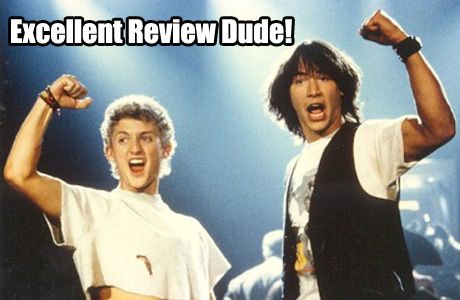


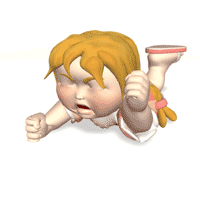
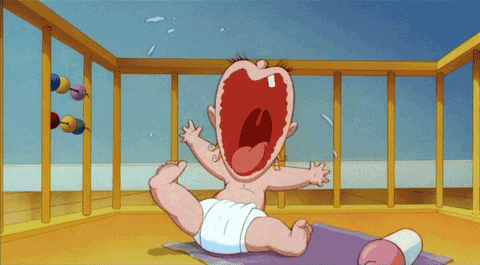




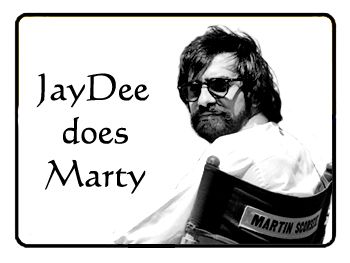
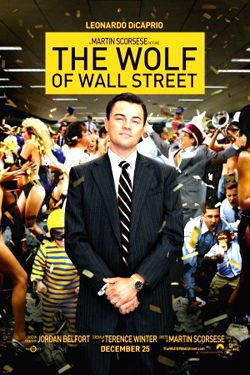
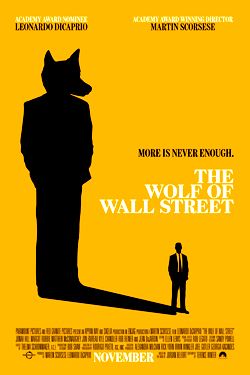
 Getting quite ballsy in your old age aren't you?
Getting quite ballsy in your old age aren't you?